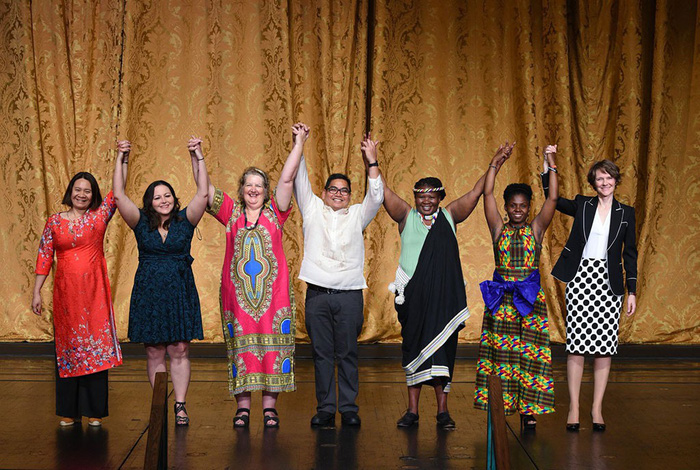Vietnamese activist Nguy Thi Khanh knew early on that depending on coal to meet the country’s growing demand for energy would be a disaster for its people and the environment.
She also knew that listening to women in the villages, and involving government officials in the conversation, were key to a greener future for the Southeast Asian country.
It was Khanh’s combination of collaboration and pragmatism that helped convince Vietnam to rewrite its energy plan to reduce its dependency on coal, even as other activists in the region have struggled to make an impact.
“Energy is important for economic development, and it also has a huge impact on the environment and the people. But there was very little involvement of the civil society in the government’s energy plans,” said Khanh.
“Particularly women, who are also affected, but were not being heard, as decisions are made by men - it is important to listen to them,” she told the Thomson Reuters Foundation.
Khanh last week was named as one of the recipients of the prestigious Goldman Environmental Prize, known as the “Green Nobel”, which honors grassroots activism.
She was one of two Asians to win the prize, which this year was dominated by women.
Khanh’s work is critical as Vietnam develops a wave of new power plants to support economic growth that is among the fastest in Asia.
Khanh set up Green Innovation and Development Centre (GreenID) in 2011 to educate communities on renewable energy, and convince officials on the merits of clean energy.
She was instrumental in pushing the government to revise its long-term energy projections to reduce its planned coal expansion and cut emissions by up to 25 percent by 2030, in part by increasing power generated from wind, solar and biomass.
She also halted the construction of two hydro-power plants in a national park, and helped design a gender impact assessment manual for hydro developers.
Vietnam’s commitments are an exception in the region, where activists from Thailand to Cambodia are protesting coal-fired power plants and mega dams they say are harming the environment and forcing people off their lands.
“Renewable energy, if done well with the participation of stakeholders including farmers, can help achieve the Sustainable Development Goals and climate goals,” she said, referring to the U.N.’s set of global development goals to be met by 2030.
The objectives include key energy targets of ensuring universal access to modern energy and increasing the share of renewables used.
Vietnam is well placed to achieve those aims, “as we have abundant non-hydro renewable energy resources,” Khanh said.
“There is a great opportunity for our nation to move beyond coal. As the mother of three kids, I want to make sure there is clean water, clean air and a clean environment for our kids.”


















































